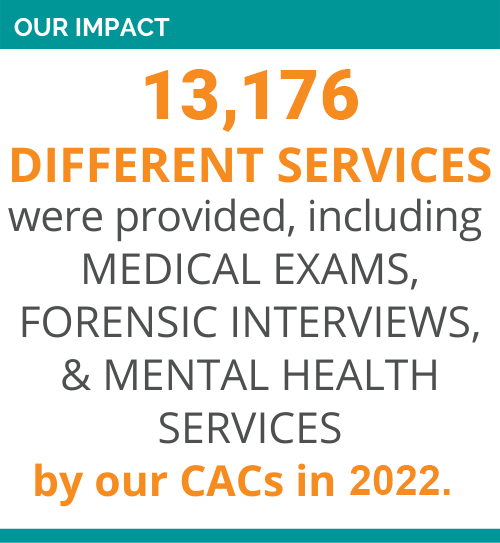CHILDREN'S ADVOCACY CENTERS
What is a CAC?
Children’s Advocacy Centers (CACs) are a nationally recognized, empirically supported model, and are regularly evaluated to ensure that the highest level of services are provided. CACs are child-friendly centers where a multidisciplinary team (MDT) of professionals offer a coordinated response to allegations of child sexual and severe physical abuse. These teams include:
- Department of Children and Families workers
- Medical professionals
- Mental health professionals
- Police officers
- Prosecutors
- Victim advocates
What do CACs do?
CACs reduce the stress experienced by child victims of abuse and their non-offending family members through the investigation and intervention process. By fostering collaboration and communication amongst agencies, CACs provide a swift, sensitive, and culturally-responsive coordinated response to child victims and witnesses.
Why are CACs important?
CACs coordinate a single forensic (fact-finding) interview to gather the information needed by each member of the MDT to successfully investigate allegations of abuse. By taking this approach, they ease children’s trauma by reducing a child's need to “tell their story” repeatedly. CACs also function as a community resource on child abuse and family violence.
SERVICES
What services are offered?
CACs proactively assure that children and families are linked to medical, mental health, victim advocacy, and other services as determined on a case-by-case basis. These services come at no cost to the families and include:
- Multidisciplinary teams interventions and forensic interviews
- Victim advocacy
- Medical and mental health services
- Community education
Why are these services provided at the CAC?
The purpose of these interventions is to evaluate allegations of abuse with regard to protective and safety concerns, mental health issues, medical needs, and possible prosecution.
Sidebar




